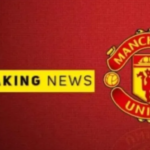Citing a litany of perceived flaws and injustices, the individual proclaimed, “I believe that the Video Assistant Referee (VAR) should be eliminated.
What is the significance of all of these blunders that are not necessary? There is an excessive amount of favoritism in the video assistant referee system this time around, and it is about time that we have artificial intelligence take over.”
The statement has reverberated throughout the footballing world, reigniting long-standing debates about the efficacy and fairness of VAR.
While the system was introduced with the noble intention of minimizing errors and enhancing the accuracy of refereeing decisions, its implementation has been marred by controversy and criticism.
Central to the outcry against VAR is the perception of bias and inconsistency in its application.
Critics argue that certain teams or players receive preferential treatment from VAR officials, leading to disparities in the interpretation of key incidents and undermining the integrity of the game.
This alleged favoritism has fueled frustration and disillusionment among fans, who feel disenfranchised by the apparent arbitrariness of VAR’s interventions.
Nowhere is this frustration more palpable than among the supporters of Coventry, whose fervent allegiance to their club has been punctuated by VAR-related disappointments.
The fans of Coventry express their sorrow as they witness their team’s fortunes being dictated by the capricious whims of technology rather than the skill and passion displayed on the pitch.
For them, VAR represents not progress, but regression—a hindrance to the purity and spontaneity of the beautiful game.
The sentiment is shared by many within the footballing community, who view VAR as a source of controversy and discord rather than a solution to officiating errors.
Indeed, VAR has been the subject of intense scrutiny and debate since its introduction, with critics pointing to numerous instances of contentious decisions and disputed outcomes.
In response to these concerns, calls for the implementation of artificial intelligence (AI) as an alternative to VAR have gained momentum.
Proponents argue that AI-driven systems would offer a more objective and consistent approach to refereeing, free from human error and subjective interpretation.
By harnessing the power of machine learning and data analysis, AI could revolutionize the way refereeing decisions are made, restoring trust and transparency to the officiating process.
However, the prospect of AI replacing VAR is not without its challenges and complexities.
While AI may offer certain advantages in terms of impartiality and efficiency, its implementation would require careful consideration of ethical, technical, and logistical factors.
Moreover, the transition to AI-driven refereeing would necessitate significant investment in technology and infrastructure, posing practical challenges for footballing authorities.
As the debate over VAR intensifies, one thing is clear: the status quo is no longer sustainable. Whether through reforming VAR, replacing it with AI, or exploring alternative solutions, the footballing community must come together to address the shortcomings of the current refereeing system and restore confidence in the integrity of the game.
Until then, the fans of Coventry and football enthusiasts worldwide will continue to mourn the lost opportunities and disputed decisions that tarnish the sport they hold dear.










